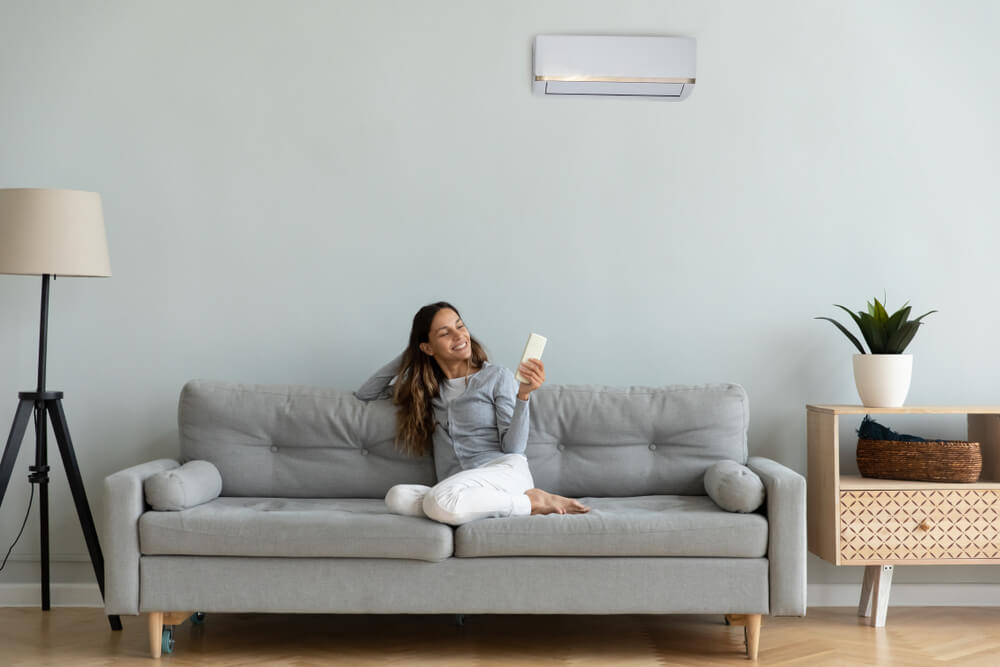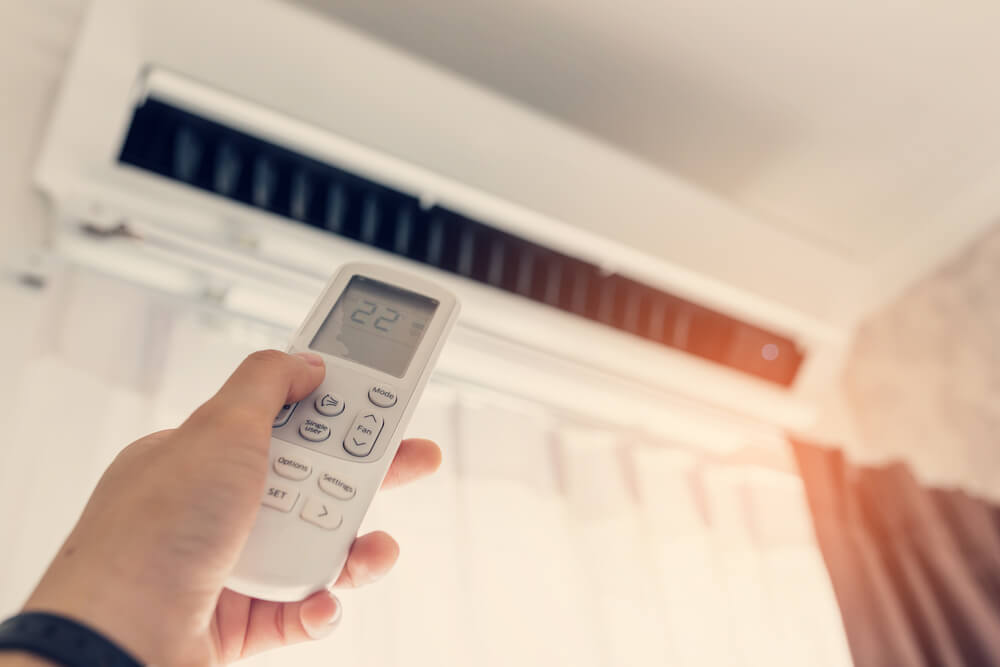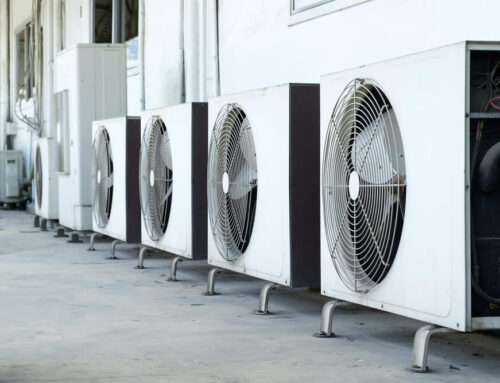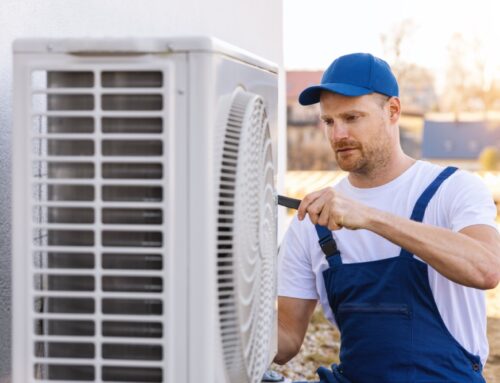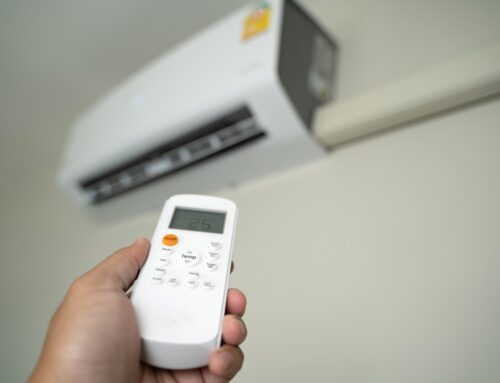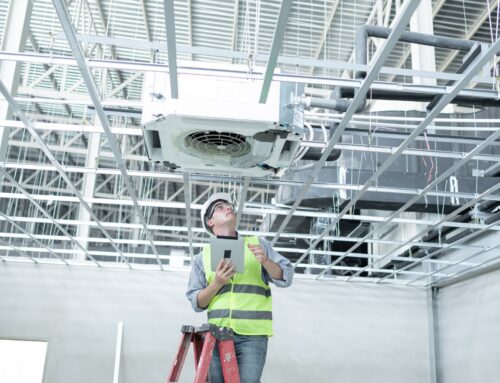Just imagine the scene: you and your family are unwinding after a long workday on your patio, trying to have a good time, but the constant whirring of the AC unit next to you distracts all of you from having a good time.
If this has happened to you way too many times, consider two things – you may need to think about the repair of HVAC units or consider a roof air conditioner system.
What’s the big deal with HVAC on a roof? What may make a rooftop AC unit better? In this article, the team at Chills Air Conditioning brings you the answers.
About Rooftop AC Units
First off, these systems differ a bit from your typical central AC arrangements, but most experts argue that they can have significant benefits in terms of costs and efficiency. While HVAC systems on the roof are more associated with commercial buildings, in some cases, they can make an ideal fit for residential homeowners, and we will talk about such cases.
As mentioned above, rooftop AC units differ slightly from traditional central layouts. The latter (split air conditioning systems) has two central units. One of those is the outdoor condenser unit, and the second is the indoor furnace or air handler.
In the case of a rooftop HVAC (or a package system), you have a single unit that can handle both the air handling and condensing functions. It still connects to the house’s ductwork, but you don’t have any indoor components.
Also, the cooling cycle is pretty similar to the process of other layouts:
- The warm air enters the system and passes the evaporator coils.
- The coils extract the heat from the air with refrigerant.
- The air gets cool while the refrigerant gets warmer.
- A dedicated fan blows the cool air into the home through the ductwork.
- The warm refrigerant then goes to the compressor, which releases heat through the exhaust system.
Some rooftop air conditioners also come with heating components. These usually come with gas-powered heat exchangers to warm up the air circulating through the house.
The Benefits of Having a Rooftop HVAC

Opting for a rooftop AC unit has several significant benefits. For starters, the “out of sight, out of mind” will be a game changer for most homeowners. Traditional AC units can be rather noisy and may mess up the décor of a patio or even the entire home. You will probably hear the rooftop AC unit outside the patio as well, but it won’t be as bothersome as a traditional unit whirring next to you.
On that end, here are other benefits you might want to consider:
- More available space: Because rooftop HVAC is on the roof (as the name says), they won’t eat up any space in a small yard.
- Decreased risks of accidental damages: rooftop ACs can’t be damaged by lawnmowers or wayward soccer balls.
- Easier access: If you are asking, “How to clean rooftop AC units?” the easier access will answer your question immediately. The entire system is in a single location; they are easier to set up, maintain, and repair if something happens.
- Decreased noise: Rooftop AC units make less noise both inside and outside.
- Better security: These systems are also harder to access for thieves who are looking for copper pipes or stealing units with the intention of making second-hand sales.
- Better energy efficiency: Rooftop HVAC systems are usually more efficient thanks to their design which naturally lend themselves to the entire cooling cycle.
- Better curb appeal: A tucked-away rooftop AC can improve the overall look of any home.
Possible Drawbacks of Having a Rooftop AC Unit
While these systems can be stellar for some homeowners, they aren’t for everyone. For starters, they don’t work with every roof type. Also, there’s a good reason why split systems are the standard. Below, we’ll list out some of the things you’ll want to consider before opting for a rooftop HVAC:
- Higher installation costs: Typically, a new AC unit will cost around $5,900, but rooftop HVAC systems may very well be around $11,000.
- The weather may be an issue: While this is rare, there are cases when rooftop HVAC systems sustain weather damage, such as strong wind and lightning.
- Ductwork issues: If you don’t already have ductwork done before buying a rooftop unit, you might be better off with a ductless system. If you opt for installing full ductwork, you will spend an additional $1.000 to around $3,000 just to install the ducts.
- You may not notice some issues: Because of the system’s location, more minor malfunctions can be challenging to detect, and if left unaddressed, they can cause major problems to your entire system.
- Dealing with potential roof damage: Rooftop HVAC systems are hefty and can create lof spots on roofs. In these cases, stormwater can weaken the roof’s integrity making it more prone to further damage and leaks. While these cases are rare, they can happen, especially if you don’t work with a professional technician to install the system.
How to Clean Rooftop AC Units?
Cleaning rooftop units can be challenging and risky simply because of the system’s location. As such, your best bet will always be calling a certified expert to clean your rooftop unit routinely.
Other Considerations
Before you start researching the best deals on rooftop HVAC units, there might still be things to remember before you pull the trigger on a unit.
Care and Maintenance
While rooftop units have a lot going for them, you will need to keep in mind that you want them to be located somewhere that can be easily accessed and that you can spot minor issues before they become significant problems. As mentioned above, this can be a bit challenging with a rooftop unit as it’s out of your sight most of the time. As such, regular maintenance is essential for rooftop AC systems.
That said, homeowners should make a habit of regularly checking their rooftop system for signs of cracks, chips, rust, and buildup. Also, you will need to ensure that you and your technician can access the system easily during yearly maintenance.
The Climate
Also, you should remember that the location of your home will also play a role in how your rooftop unit will function. If you live in a region with frequent storms and heat, or if your unit is located at a higher elevation, chances are, you will need more maintenance work and added protection to keep everything up to par.
Let’s Talk!
As you can see, there are a myriad of benefits when it comes to these systems. Still, as you’ve read the paragraph regarding the climate, South Florida can be a bit more challenging for these units. However, if you choose to work with experienced and knowledgeable technicians such as our team, we can work out an arrangement in which you can get the most out of any rooftop unit and enjoy its benefits for years to come. Just reach out to us!

